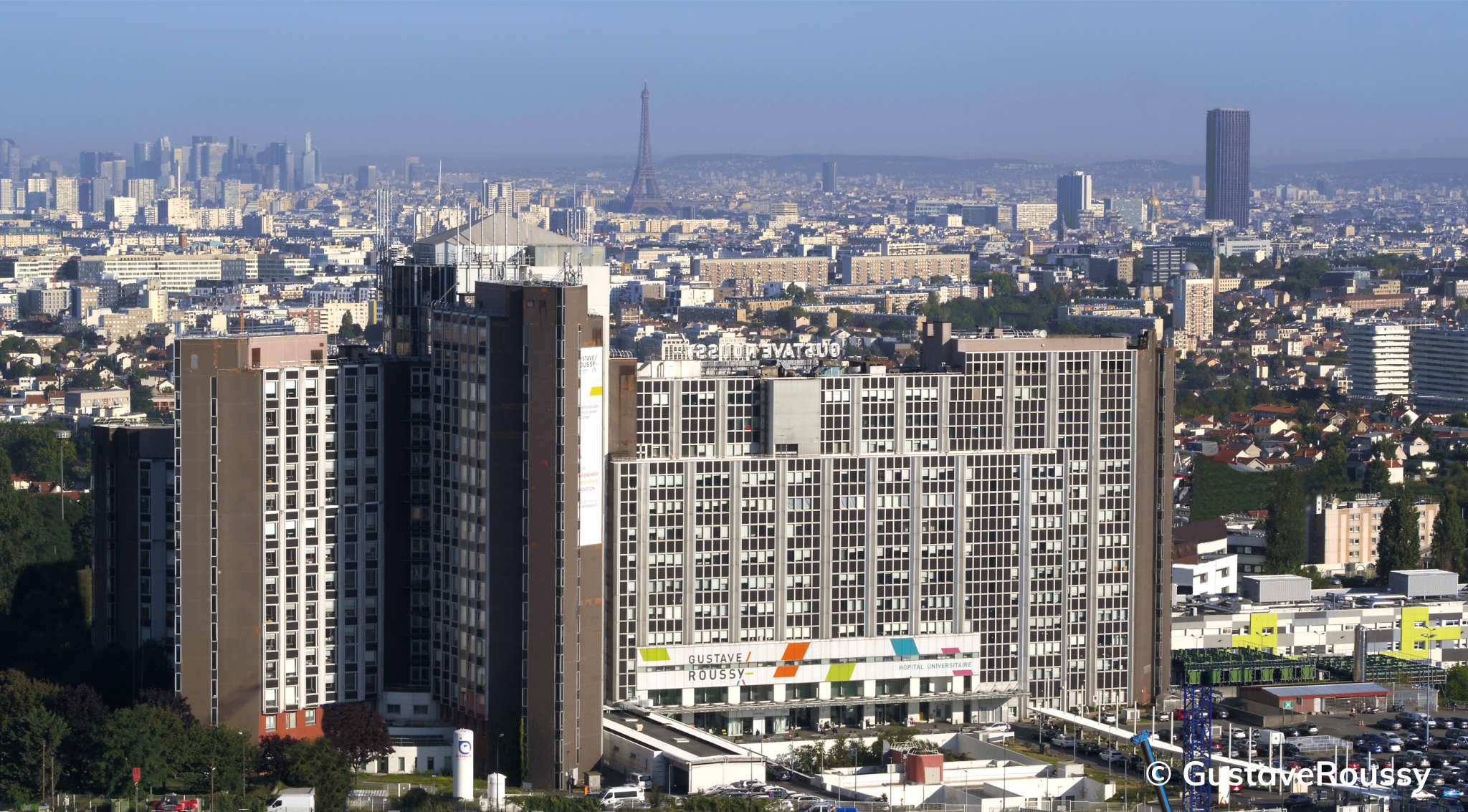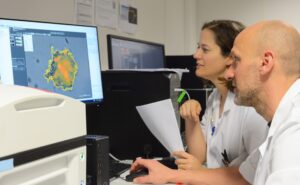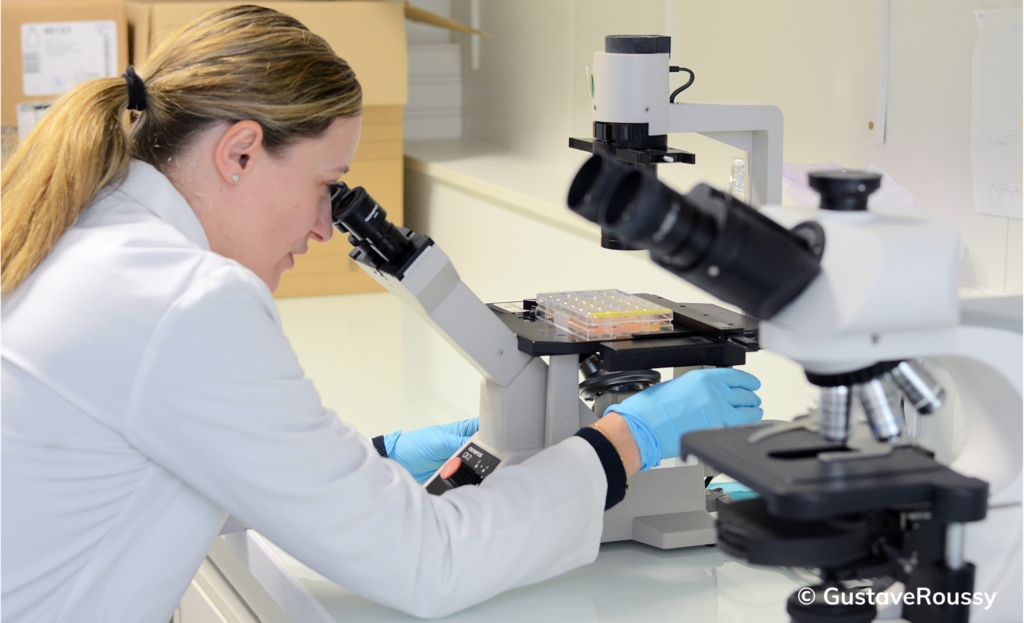
A Leading Cancer Center in Europe
The Institute was founded by Professor Gustave Roussy. For a century, it has been developing an approach to oncology which remains faithful to its founder’s values: innovation, dynamism, cooperation and benevolence. All of this is built on the three guiding principles: patient care, research and teaching. Gustave Roussy Foundation was created in 2005 and transformed into a Research Foundation in 2023. Located at the heart of the Greater Paris region, south of Paris in Villejuif, Gustave Roussy is in the process of building a world-class Cancer Campus around the Institute. This campus will include four components on the same site:
- The hospital component, in the center, is Institut Gustave Roussy, ranked 4th in the world for oncology, which treats around 50,000 patients a year.
- The second component is Research, with the construction of a new 30,000 m² center to double Gustave Roussy’s research capacity in the service of patients by 2027.
- The third component is Education, which will soon be relocated to a new building on the west side of the Campus. This Education component is coordinated by the Université Paris-Saclay, the world’s 15th largest university, and Gustave Roussy’s School of Cancer Sciences. The site includes a doctoral school in oncology, as well as a diploma course for engineers wishing to devote themselves to cancer research (IFSBM).
- Finally, the fourth part is the Industrial component operated by the Paris Saclay Cancer Cluster, co-founded by Gustave Roussy and the only industrial cluster in oncology to be awarded the Biocluster label by the French government. This part will be located in the southern part of the Campus on 100,000 m² occupied by start-ups and pharmaceutical companies.
“We place innovation at the heart of a human, scientific and technological revolution in the fight against cancer,” concluded Professor Fabrice Barlesi, General Director of Institut Gustave Roussy.
Compassionate Hospital Care: “Living Better with Cancer”
Cancer patients often undergo physically and emotionally taxing treatments. The fight against cancer is called a fight for a reason. Institut Gustave Roussy’s “Living Better with Cancer” aims to offer personal help and support in addition to supportive care to their patients throughout their medical journey to offer some ease. The “Living Better with Cancer” program provides a variety of activities grouped under the following themes:
- Self-image and wellbeing: Provided is counseling on self-image, cosmetic care, make-up workshops, access to a hair salon, relaxation therapy, etc. The goal is to help patients adapt to physical problems and changes resulting from the illness and its treatment.
- Physical exercise: Karate-Do and Qi Gong are some examples of the provided physical exercise. Physical exercise is adjusted to the patients’ condition even when receiving treatment. Patients may also be taught how to control periods of anxiety and stress.
- Art in the hospital: Releasing or developing creative and artistic abilities by participating in workshops or artistic activities can be helpful.
- Personal support for patients: This includes help and bedside visits to the patient for a time to talk or relax.
Such activities help patients cope better with their illness and improve their day-to-day quality of life during the treatment period. They are made possible by philanthropy and are free of charge for the patients.
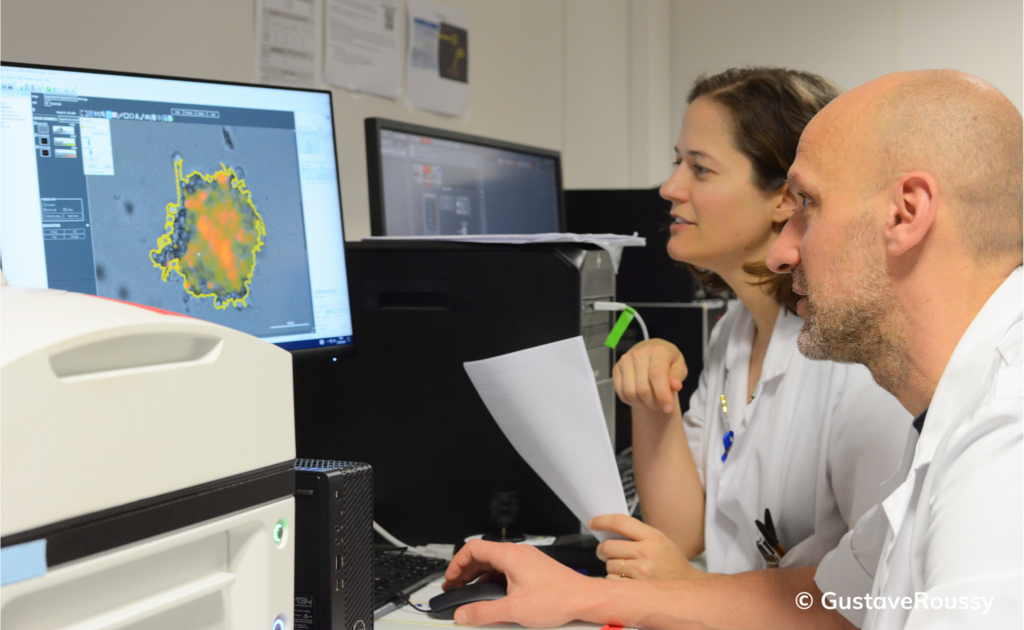
Recent Developments
Thanks to donations made, major discoveries have been made that will change treatments worldwide and defy prognoses.
Microbiota
Professor Laurence Zitvogel’s team has been dedicated to researching the role of intestinal microbiota in the development and treatment of cancers. Here are some of their findings:
- Some tumors are able to evade the immune response. A mechanism used by tumors is the activation of checkpoints. Identifying these checkpoints allows for the development of new immunotherapy treatments.
- The ineffectiveness of immunotherapy and chemotherapy treatments was correlated with an imbalance in their intestinal microbiota. (This discovery has been named one of the 10 most important advances in the field of oncology by Nature magazine)
Personalized Cancer Prevention
In 2021, a program called “INTERCEPTION” was launched. This program offers those identified as being at “increased risk of developing cancer” tailored diagnosis and prevention planning. Knowing that 40% of cancers are preventable, the hope is for this strategy to reduce the incidence of cancers diagnosed too late.
Liquid Biopsy
Roche France, Foundation Medicine, Inc. and Institut Gustave Roussy are launching a unique partnership to establish in-house liquid biopsy testing at Institut Gustave Roussy’s facilities. Technology from Foundation Medicine’s FoundationOne®Liquid CDx, a blood-based comprehensive genomic profiling (CGP) test will be used.
FoundationOne Liquid CDx works by taking a blood sample and analyzing it for more than 300 cancer-related genes for genomic alterations that cause cancer to grow. Doing so can help provide a diagnosis faster and guide treatment strategies. This is a valuable tool in identifying rare and hard to find mutations. It can also report tumor fractions, which provides valuable insight that informs research or treatment for patients. Overall, liquid biopsy allows more patients with advanced cancer to benefit from the targeted therapies.
Exploratory Research and Circulating Information
The overall research strategy is based on a three pronged approach: exploratory, programmatic, and translational research. Exploratory research generates new knowledge while programmatic research includes emerging projects and medical-scientific programs. This research is mainly translational research, meaning that discoveries will be applied to improve human health as quickly as possible. Besides publications, another goal of the research is to transform the results into innovative products and validate their safety and efficacy in clinical trials.
“In general, Gustave Roussy’s research is conducted with a view of having a measurable societal impact through innovative discoveries to improve patient care,” added Barlesi. Their ambition is to extend the frontiers of science and continue to reinvent methods of treatments so as to raise the hope of curing cancer in the 21st century. The institute has ten flagship programs aimed at specifically transforming cancer care through research.
Additionally, Gustave Roussy works closely with the world’s leading researchers. 15 of Gustave Roussy’s physician-researchers are ranked among the world’s most cited researchers, and regularly share their advances and publications at the world’s leading cancer congresses.
Communication is done through their website, social media, newsletters, webinars, conferences, brochures, annual reports, print and TV media. “Our aim is to share our scientific advances and hopes with as many people as possible, to dispel preconceived ideas about cancer, and to remind them of the importance of donations in advancing research,” added Barlesi. Barlesi mentioned that donations are what really make the difference, especially in France where the state funds research projects when they are sufficiently mature. “It’s generosity that funds the time between hypothesis and proof of concept. All the great discoveries have started from a scientific hypothesis,” Barlesi articulated. Donors are communicated extensively with on the use of their donations. They are regularly explained what has been able to be achieved, thanks to them.
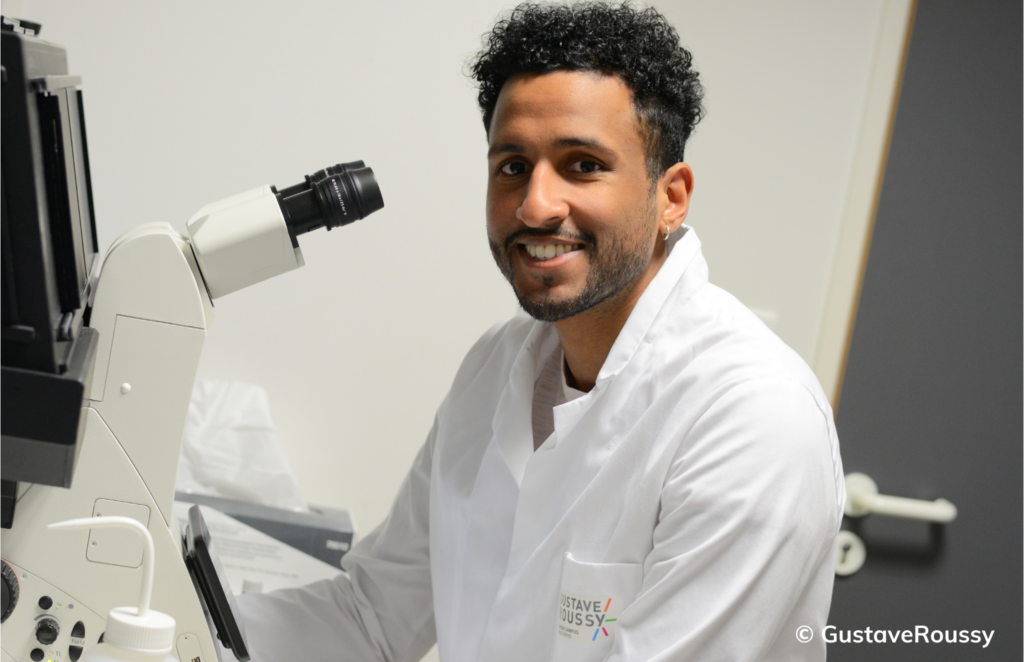
Partnering with Friends of Fondation de France
By making a donation to the Gustave Roussy Foundation, American partners can join the best in international research and benefit from tax-deductible donations to the fullest extent of the law. With your contributions, US donors can support scientific research projects to cure cancer for patients of all ages. Since the 90s, the number of cancer cases has doubled, but over the same period the cure rate has risen from 50% to 66%. Your support speeds up the pace of discovery. If you are compelled to give, thanks to Friends of Fondation de France, U.S. donors who value the work of Institut Gustave Roussy can support their ambitions and visit the link below to donate.
